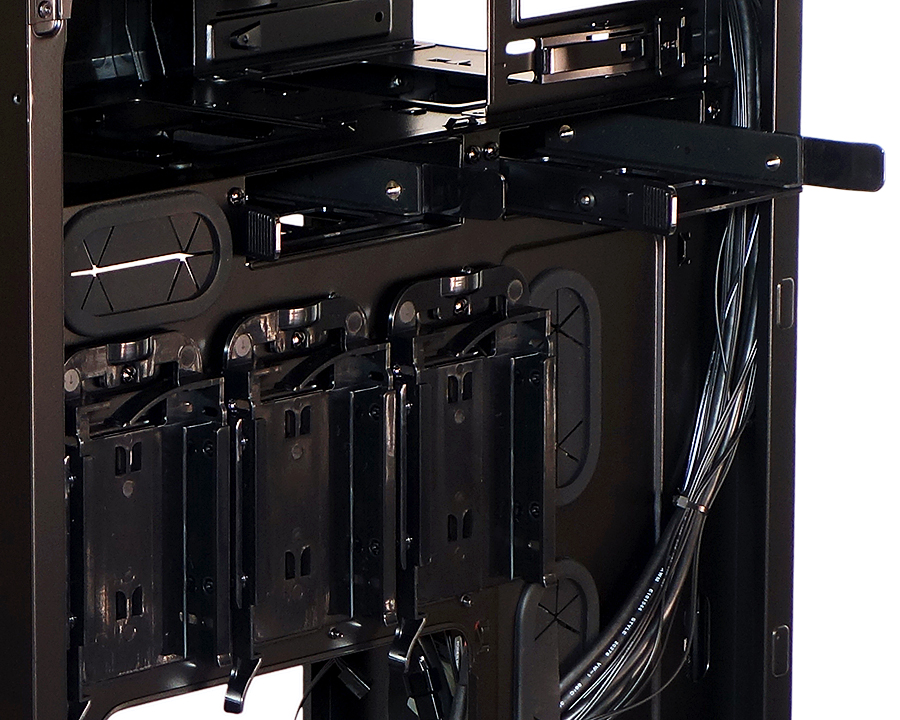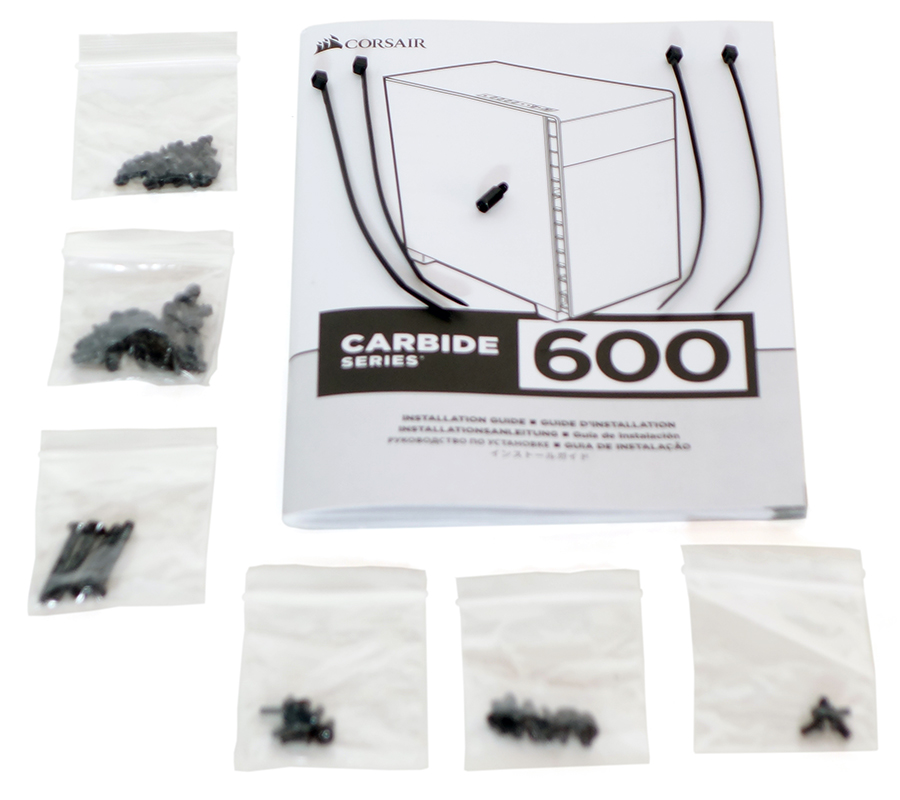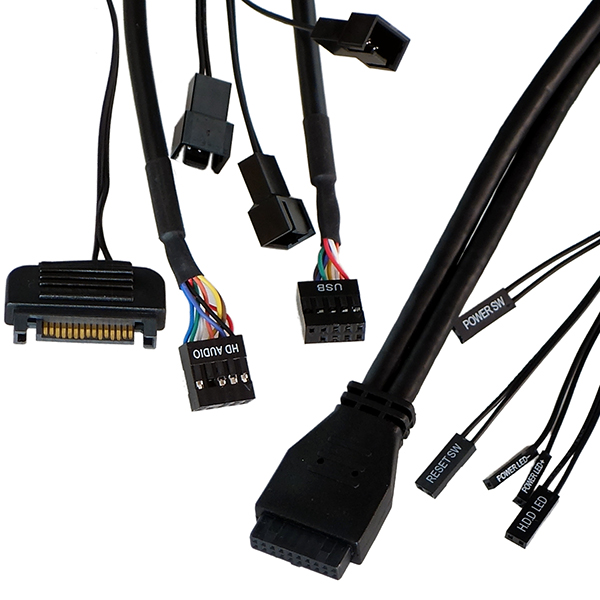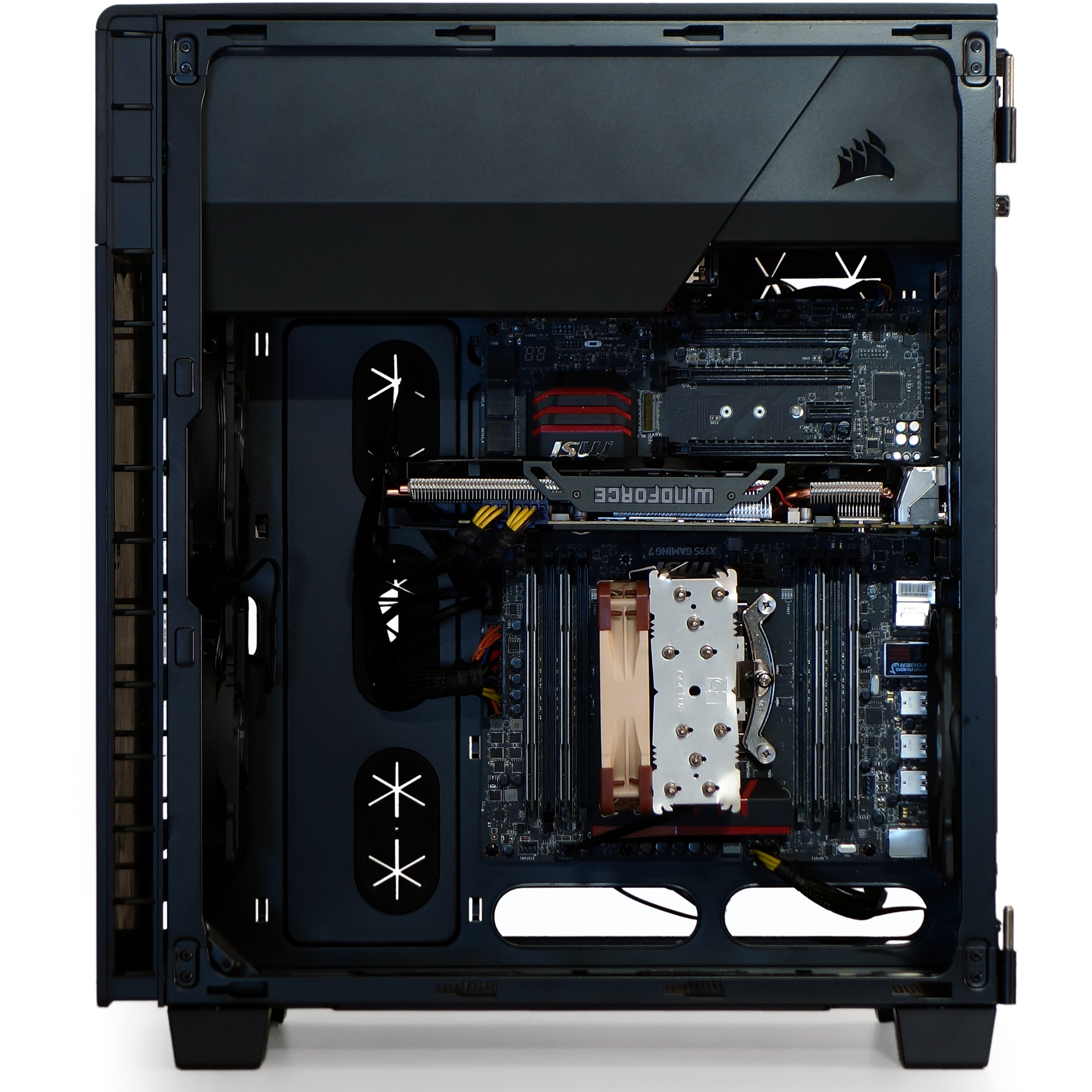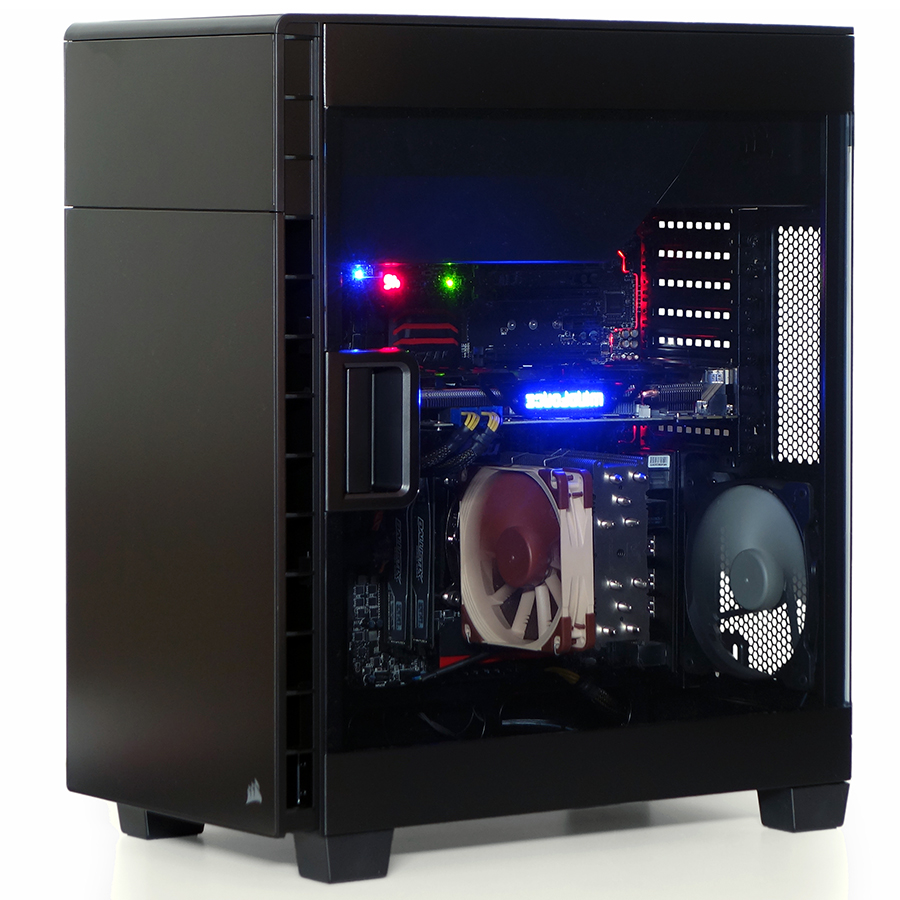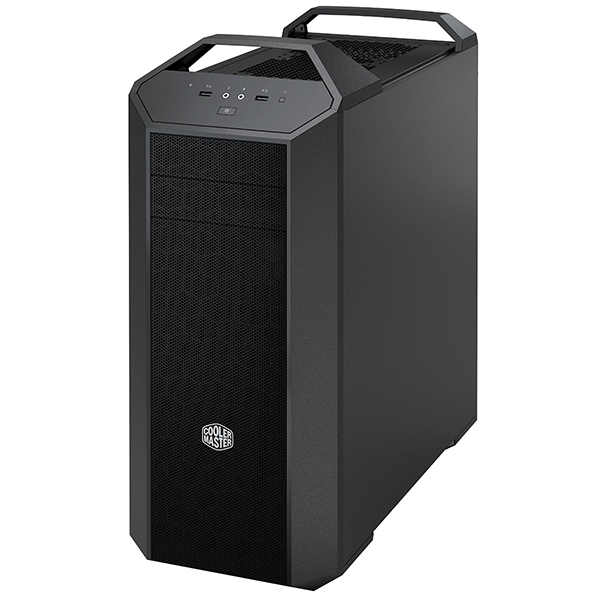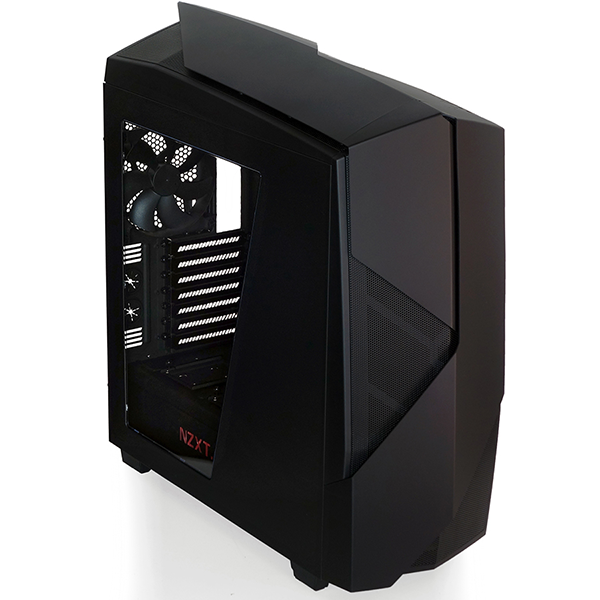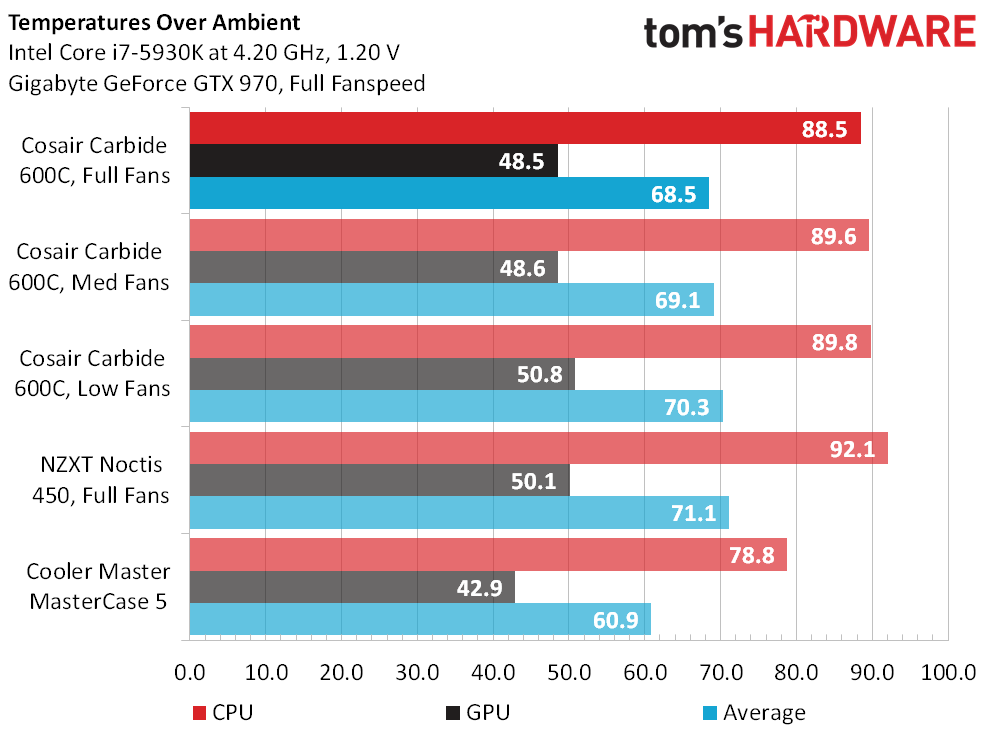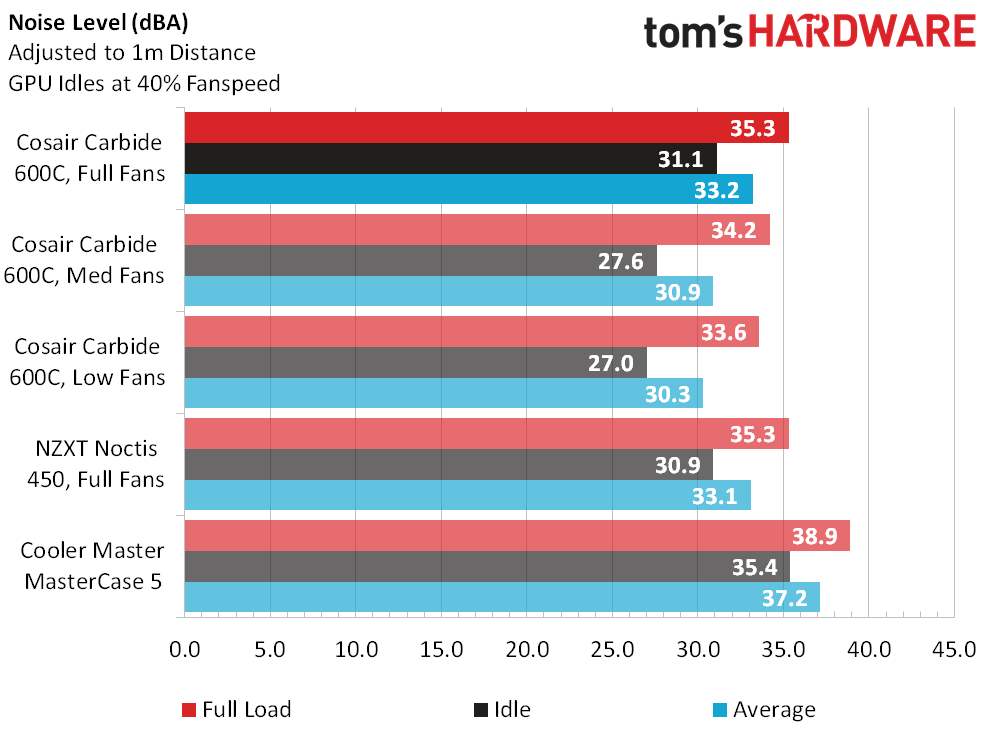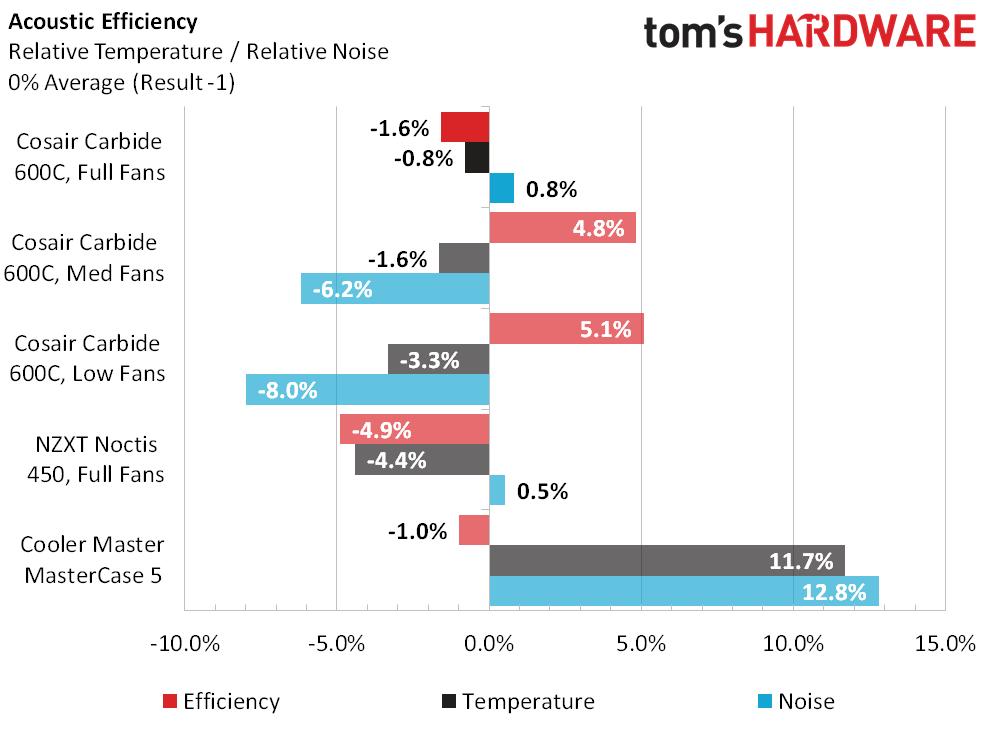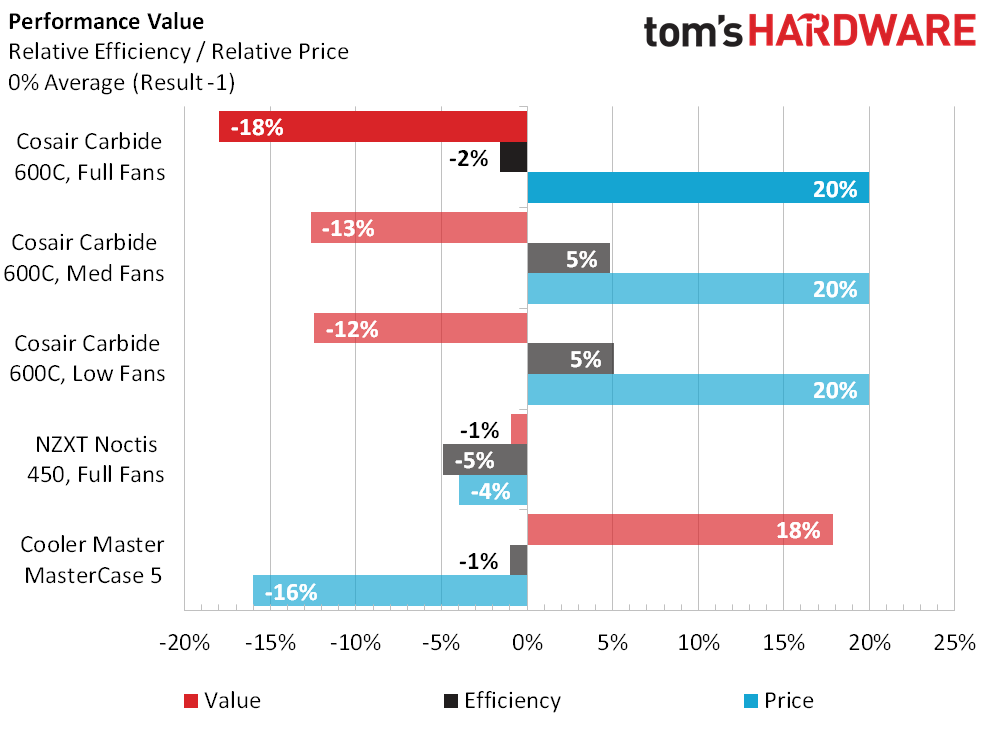Corsair Carbide Clear 600C ATX Fat-Tower Case Review
With room for two large radiators and four graphics cards, Corsair's Carbide 600C specifications read like a list of reasons to buy oversized. It looks good too, but is it really a full tower or just a wide mid-tower?
Why you can trust Tom's Hardware
Test Results And Conclusion
The Build
A metal divider separates the power supply zone, which also hosts two 5.25" external bays, from the motherboard zone. Two 3.5" trays beneath that divider have integrated pins for quick installation of 3.5" drives, plus a set of holes onto which 2.5" drives may be mounted. Screws connect the cages that hold these trays, allowing easy removal if extra space is needed within the motherboard zone.
Three 2.5" drive trays on the back of the motherboard tray have quick latches at the bottom for slide-in, tool-free SSD installation. These are also attached with screws to ease removal, if desired.
The Carbide 600C includes four long screws suitable for radiator installation, in addition to drive and motherboard screws, standoffs, and cable ties.
The fan controller gets its power from a SATA-type power connector.
A gap between the front panel of the chassis and its external plastic cover provides indirect airflow to reduce noise escaping from the front of the chassis. By leaving out the tall drive rack of traditional cases, the Carbide 600C provides enough room for long graphics cards (14.6" with front fans installed) within its somewhat compact 18.3" depth. Oversized motherboards can fit too, though the raised section seen in front of the test board must be manually verified as not being a shorting hazard when installing that oversized board. This usually won't be a problem, since that section is raised by only 1/16".
If you were looking for an inverted case with a clear left side, Corsair has you covered. Let's see how it performs!
How We Test
We continue to use our reference PC with its reference overclock for case testing, apart from replacing the X99S XPower AC with the X99S Gaming 7. That replacement has allowed us to compare tighter "Standard ATX" cases, since the XPower motherboard is oversize.
Get Tom's Hardware's best news and in-depth reviews, straight to your inbox.
Noise is measured 0.5m from the case's front corner, on the side that opens. The numbers are corrected to the 1m industry standard—used by many loudspeaker and fan manufacturers—by subtracting six decibels.
Drivers And Settings
| Chipset | Intel INF 9.4.2.1019 |
|---|---|
| CPU | 4.2GHz (42x 100MHz) @ 1.2V Core |
| Motherboard | Firmware 17.8 (02/10/2015) |
| RAM | XMP CAS 16 Defaults (1.2V) |
| Graphics | Maximum Fan for Thermal Tests | Nvidia GeForce 347.52 |
Comparison Cases
Test Results
Amazingly, our test of the Carbide 600C showed little difference in temperature between maximum and minimum fan settings, and that the case ran warm. What actually occurred was that the case took three times longer to "normalize" temperature than most of its competitors.
The CPU was 12 degrees cooler and the graphics card 1 degree cooler after only two hours of testing, but its temperature kept rising by around 1 degree every 20 minutes for the next 4 hours. The final numbers reflect that long-term increase.
The Carbide 600C did a good job of keeping the noise of graphics and CPU fans inside the case, but the case's fans were still quiet enough to be obscured by component fans.
The low noise lead to an impressive cooling-to-noise ratio, particularly with the case fans turned to low or medium speeds.
Unfortunately, the extra price for Carbide 600C's design features, such as the smoothly painted steel sheet panel inserts and transparent side panel, hurt its value when compared to the base-model MasterCase 5.
MORE: Best CasesMORE: Cases in the News
MORE: All Case Content
MORE: Cases in the Forums
Thomas Soderstrom is a Senior Staff Editor at Tom's Hardware, covering Cases, Cooling, Memory and Motherboards. Follow him onTwitter.
Follow us on Facebook, Google+, RSS, Twitter and YouTube.
-
gilbadon I wish they would follow NZXT and Fractal's lead by removing the 5.25" drive bays. I want more room for water cooling. I no longer have use for a DVD/BR Drive.Reply -
siman0 ReplyI wish they would follow NZXT and Fractal's lead by removing the 5.25" drive bays. I want more room for water cooling. I no longer have use for a DVD/BR Drive.
In all honesty they are the best place to mount a water res ot pump. I like the asthetics of some other res but its practical. Also removable hard drives are also a nice item to have. -
renosablast Uh, the USB ports, fan controller switch, power button etc. are on the top left edge, not the right edge.Reply -
footman I just built a new pc in to this case, 4790K at 4.6Ghz along with an overclocked 980Ti. To be honest while I like the finished product and the airflow is much better than the first generation NZXT H440, I have to say that the NZXT case was easier to work with from a radiator perspective. This is probably a better case for air cooling than for water and I am sure that there are better cases for air cooling at this price point. The case is a lot smaller than my last (Core V71) and quieter and comes with the typical great Corsair build quality.Reply -
gilbadon Reply17479031 said:I just built a new pc in to this case, 4790K at 4.6Ghz along with an overclocked 980Ti. To be honest while I like the finished product and the airflow is much better than the first generation NZXT H440, I have to say that the NZXT case was easier to work with from a radiator perspective. This is probably a better case for air cooling than for water and I am sure that there are better cases for air cooling at this price point. The case is a lot smaller than my last (Core V71) and quieter and comes with the typical great Corsair build quality.
Nice build. That bottom tube looks hard lined you did such a good job.
Did you not use a reservoir? Just a t-line to fill? -
footman Reply17484080 said:17479031 said:I just built a new pc in to this case, 4790K at 4.6Ghz along with an overclocked 980Ti. To be honest while I like the finished product and the airflow is much better than the first generation NZXT H440, I have to say that the NZXT case was easier to work with from a radiator perspective. This is probably a better case for air cooling than for water and I am sure that there are better cases for air cooling at this price point. The case is a lot smaller than my last (Core V71) and quieter and comes with the typical great Corsair build quality.
Nice build. That bottom tube looks hard lined you did such a good job.
Did you not use a reservoir? Just a t-line to fill?
Cheers, appreciate the compliment.
I Use a Swiftech rad that has an integrated reservoir and the ability for me to attach an MCP35X pump to. Saves a bunch of room and makes for a much neater build. I believe that EK have something similar these days too.
http://www.swiftech.com/MCR-X20-Drive-Rev3.aspx
The fan positions are slightly adjustable so I was able to raise the front rad and lower the back rad and stretch my tubing until it was perfectly horizontal. I thought it looks cool straight and level, go me thinking about rigid tubing now!! Perhaps my next build.
-
blazorthon A mid-tower around 10" wide certainly is rare. The only other such mid-towers I can think of are some Cooler Master models.Reply -
gilbadon Reply17484609 said:Cheers, appreciate the compliment.
I Use a Swiftech rad that has an integrated reservoir and the ability for me to attach an MCP35X pump to. Saves a bunch of room and makes for a much neater build. I believe that EK have something similar these days too.
http://www.swiftech.com/MCR-X20-Drive-Rev3.aspx
The fan positions are slightly adjustable so I was able to raise the front rad and lower the back rad and stretch my tubing until it was perfectly horizontal. I thought it looks cool straight and level, go me thinking about rigid tubing now!! Perhaps my next build.
Wow that is really cool. I never knew that type of thing existed.
